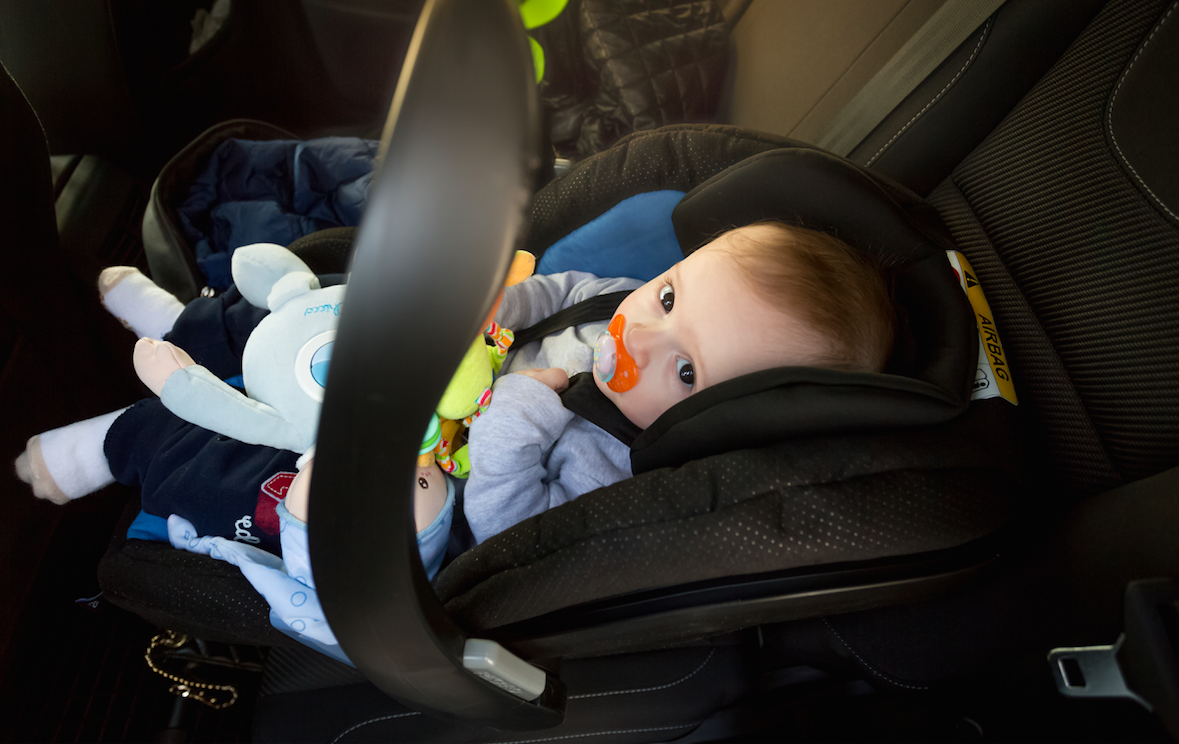According to SafeKids.org, a child dies from heat stroke in a car every 10 days on average. Fatalities have been reported in nearly all 50 states, and 11 months out of the year. That’s because even on a 70-degree day, temperatures inside your vehicle can quickly rise to 110 degrees.
Animals, too, are very susceptible to heat stroke because they can only cool themselves by panting. Dogs can sustain brain damage or die from heat stroke in just 15 minutes.
Sadly, there are a few myths out there that may be contributing to the statistics.
Myth #1: “I’ll only be a minute.” You may think you can run into the store, find exactly what you need, avoid a line at checkout and be back in your car in 60 seconds but really, when has this ever happened in anyone’s lifetime? Odds are that there are many things that will delay your return. Is it worth placing your child and pet in danger?
Myth #2: “I’ll leave the windows cracked.” Leaving a window cracked makes approximately a 2-degree difference – so little that it doesn’t help at all. In ten minutes, the temperature still goes up 20 degrees, 34 degrees in a half-hour and 43 degrees in one hour. Add to this the fact that children are quicker to overheat – up to five times faster than an adult – because of their size and because they have not yet developed the ability to cool down through sweating.
Myth #3: “It’s only 70 degrees outside so it’s safe.” Children and pets have died from heat stroke in a car when the outside temperature is barely above 70 degrees. Depending on the breed of dog, existing medical conditions, age and weight, even temperatures in the 60s can be dangerous. One study conducted in San Francisco measured the temperature inside a parked car on a 72-degree day. Within 30 minutes, it was over 110 degrees.
Myth #4: “I’ll leave water in the car with my dog/child.” Water can prevent dehydration but it does very little to prevent heat stroke.
Myth #5: “I’ll leave the air conditioner running.” This idea can easily backfire. The truth is that the compressor on the air conditioner can fail or your dog could bump it and the air blowing in the car will quickly turn from cool to hot, which will speed up the rising temperature instead. Sadly, several dogs in K9 patrol cars have died this way recently. If it can happen to the police, it can happen to you.
Protect your child and dog by remembering to ACT:
A is for Avoid. Avoid heat-related incidents by never leaving a child or dog alone in a parked car at any time of year, even in your driveway.
C is for Check. Always check the car when you park to make sure everyone is out: Learn to “look before you lock.”
To help you remember, you can…
- put your shoes, a purse, cell phone or anything else you’ll need at your destination in the back seat near your child.
- place a stuffed animal in the front seat as a visual reminder
- check out one of the new sensors on the market that will sound an alarm
- set up an alert on your phone
- ask your child care provider to call you within 10 minutes if your child hasn’t arrived as scheduled.
T is for Take action. Call 911 right away if you see a child or animal left alone in a car.
Finally, a few more tips:
- Keep car keys out of reach of your children to prevent them from accidentally locking themselves in.
- Take advantage of the drive-thru when you’re running errands to avoid getting in and out of the car.
- Try to limit distractions when you drive.
- Car heat is also bad for food. It breeds bacteria. The less time you have between the store and home, the better. YourTown Health recommends putting your grocery bags in the passenger seat. It will be cooler than the trunk.
YourTown Health wants you and your pets to be safe so please spread the word.

